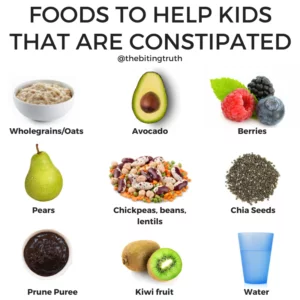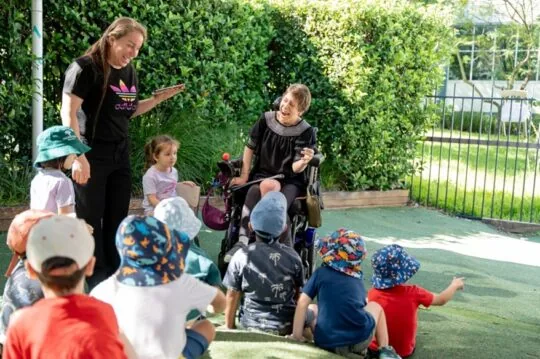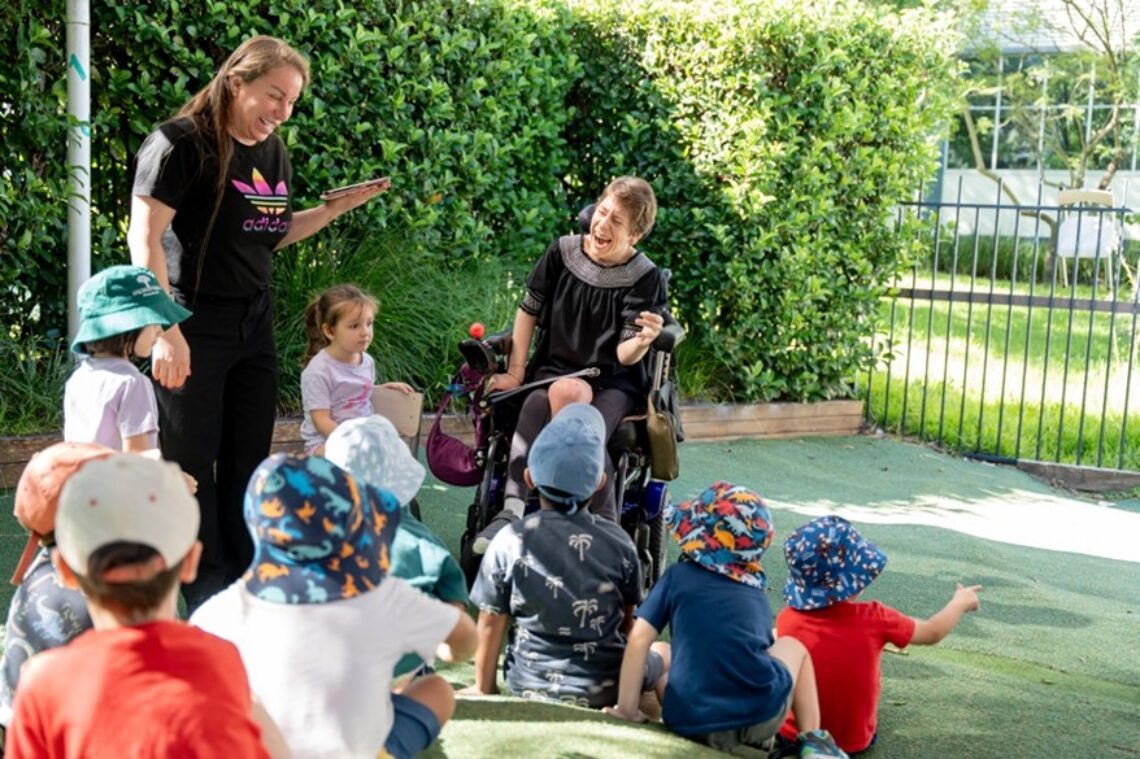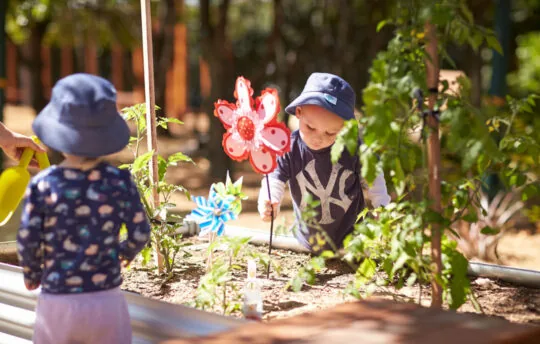Toddlers & Constipation: What Can You Do?


Constipation is a common problem among children, affecting 1 in 3 kids. It is particularly common around the time of toilet training or starting solids. Constipation can cause confusion and stress for parents as there is a lot of misinformation around.
What is constipation?
Constipation refers to passing a hard stool (type 1 or 2 on the Bristol Stool Chart) and/or not having regular bowel movements. Specifically, constipation is diagnosed when your child is passing less than two stools per week for more than two weeks.
Signs your child may be constipated include:
- Passing dry or hard pellet-like stools
- Straining when trying to pass stool
- Pain while passing stool
- Loss of appetite
- Stomach pain or discomfort
What causes constipation?
In most cases of constipation (around 95% of cases) there is no serious underlying cause. Constipation can happen for a number of reasons including:
- Naturally slow gut movement.
- Ignoring the urge to poo. Many young children put off going to the toilet while busy playing; their poo then becomes harder and larger.
- “Holding on” after a painful or frightening experience, such as doing a hard poo that causes a small cut or tear, or because they are told to do so (typically at school). Holding on further hardens the poo and makes the next bowel movement even more painful.
- A change in environment such as new or undesirable school toilets.
- Transitioning to solid foods.
- A diet high in processed foods and low in fresh fruit and vegetables.
- Drinking large amounts of cow’s milk each day.
- Low levels of physical activity.
In a very small number of children, diseases such as the absence of normal nerve endings in parts of the bowel, defects of the spinal cord, thyroid deficiency and certain other metabolic disorders can cause constipation. All of these are rare, but your doctor will check your child for them.
Diet and constipation
When it comes to dietary strategies, fluid and fibre are going to be your best friends in combatting constipation.
Adequate fluid intake will help to ensure stools remain soft and easier to pass. All drinks, including water and milk, count towards fluid intake. As a general guide:
- If your child is aged 1-3 years, aim for 1 L per day
- If your child is aged 4-8 years aim for 1.2 L per day
Children who sweat a lot, either because they are physically active or live somewhere hot, may need more fluids to stay hydrated.
To help meet these requirements, offer water with meals and snacks and invest in a cute drink bottle they can take to daycare, preschool or school.
Whilst fibre alone will not resolve constipation (especially without also increasing fluids), adequate intake can help to improve stool consistency. The current guidelines are:
- For children aged 1-3 years, 14g per day
- For children aged 4-8 years, 18g per day
These targets can be met by eating a balanced diet including plenty of whole grains, fruits, and vegetables. Specific foods you might like to try out are:

Positional support
When your child goes to the toilet, try and introduce positional support (foot support, elbows on knees) to improve their bowel motions. The right set up can take a bit of time to figure out and get used to. Do your best to make the experience as relaxing and enjoyable as possible for your child.
Stool softeners
For intermittent constipation, the combination of dietary strategies, positional support and encouraging your child to use the toilet after a meal could be enough to resolve the issue.
For ongoing constipation, or if your child is very uncomfortable, there are treatments available.
Stool softeners are safe and effective for use in children and can be used long term. The stool softeners recommended today are very different to the laxatives of yesteryear which could result in dependency or bowel addiction. If your doctor recommends a stool softener, feel confident this is safe for your child.
Use stool softeners for as long as your doctor recommends and be consistent with the treatment regimen. Children who have been constipated for many months are likely to need laxative treatment for several months, in addition to keeping healthy bowel habits.
In brief
Children can be constipated for many reasons. If you think your child may be constipated there are a range of lifestyle interventions you can try. It’s also a good idea to visit your GP or dietitian to prevent any complications.
Enjoy more tips and tricks from our in-house Dietitians Anna and Alex from The Biting Truth – Milk For Toddlers – Learn The Facts
Only About Children can help your child to grow, make friends and explore the world.
Only About Children can help your child to grow, make friends and explore the world.
Related Reads


Bec Celebrates 10 Years Working In Her Dream Job At OAC Concord
Rebecca Donatiello (Bec) celebrates 10 years working and learning at Only About Children Concord.

Choosing The Right Preschool/Kindergarten For Your Child
Choosing the right Preschool/Kindergarten for you child can be a daunting task. When exploring the ideal preschool choices for your child, there is no need to navigate blindly. Simply by asking the right questions, you can find the perfect match.
